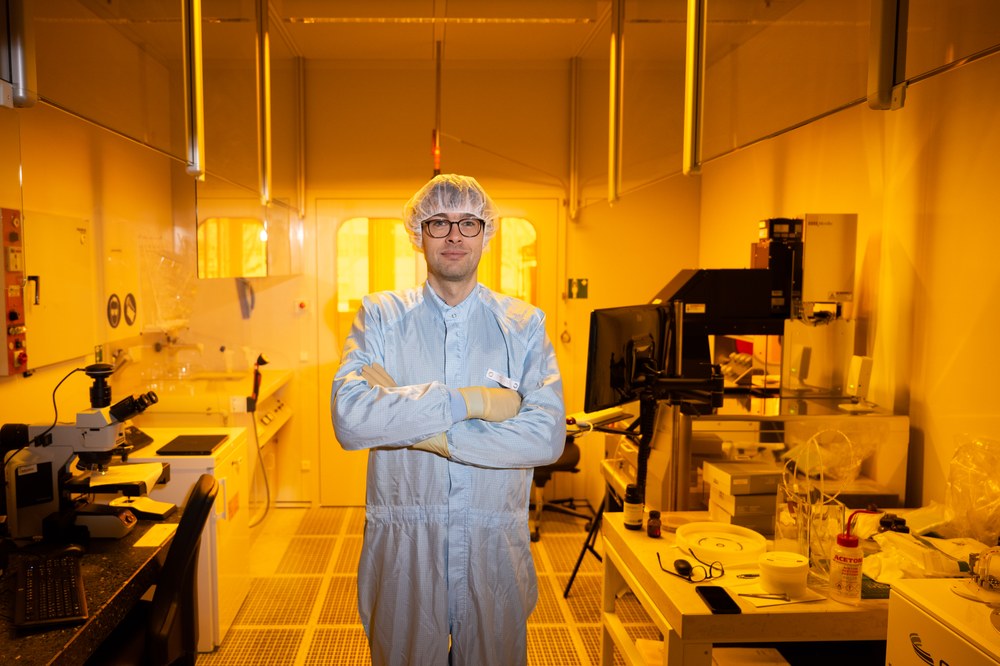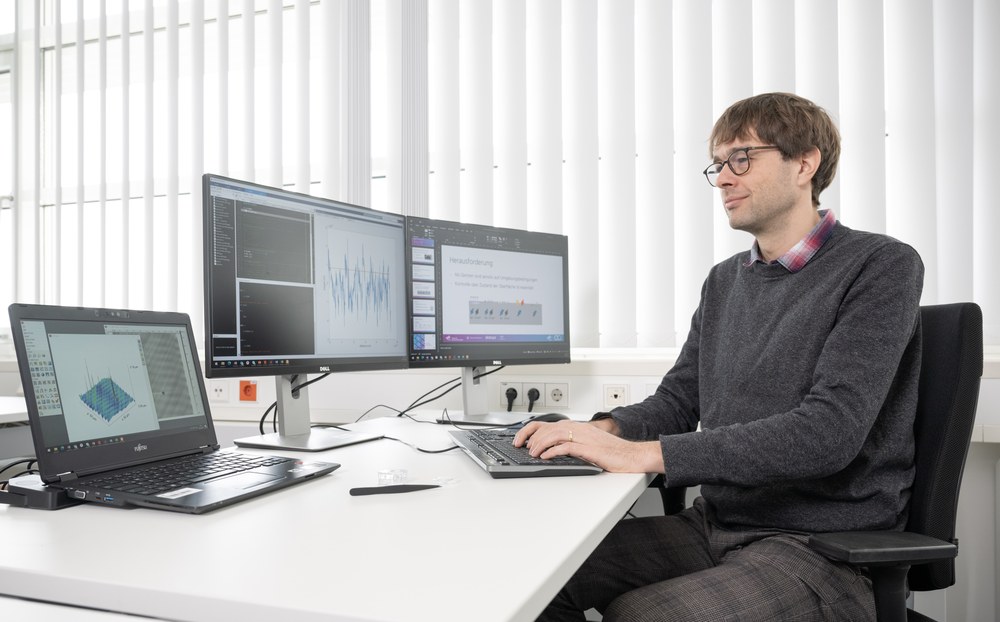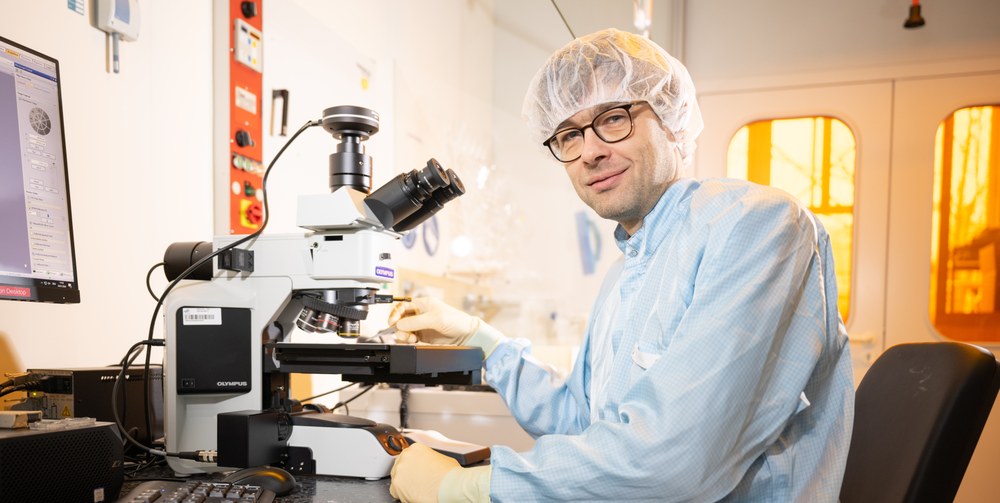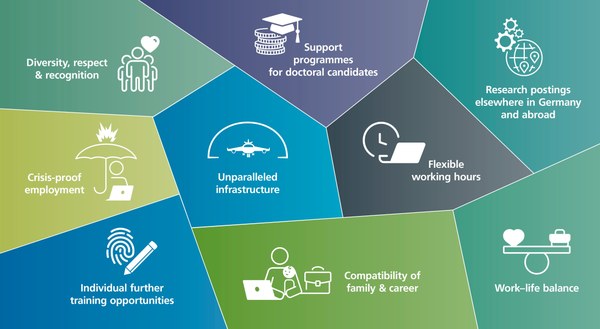Markus Mohr
Field of study: Electrical engineering
Now: Institute of Quantum Technologies
Markus Mohr studied electrical engineering, eventually joining the DLR Institute of Quantum Technologies in Ulm as a research associate after specialising in materials science and metallurgy in space. He is a project manager in the field of diamond technology in the department of Integration of Micro- and Nanosystems.
In this interview, Markus tells us what he is working on and what motivates him in his work.
Markus, what do you look forward to when coming to work in the morning?
Markus: I look forward to working with my colleagues at our institute every morning. A unique ecosystem is currently being created here in Ulm, in which researchers from DLR institutes, young start-ups and established companies are working together on the development of quantum technologies and, above all, on the development of quantum computing. Being able to contribute to this motivates me every day.
What are you researching or working on?
Markus: My colleagues and I are working on technologies to improve quantum computers based on quantum bits from nitrogen vacancies (called NV centers) in diamond. Defects are often found on diamond surfaces, which can severely disrupt the underlying quantum bits. We are therefore working in close collaboration with several industrial partners from the DLR Quantum Computing Initiative at the Ulm Innovation Center to develop gentle machining processes for diamond surfaces. These processes should prevent unwanted defects and minimise the disruptive influence of the diamond surface on the quantum bits.
„We are trying to improve the speed and performance of quantum computer hardware based on NV centers in diamond“
What does your typical working day involve?
Markus: My day-to-day work is quite varied. One very exciting part of my work takes place in a clean room for microtechnology, where I work with my project team to test the effect of plasma processes on diamond surfaces, among other things. We use a wide variety of surface analysis methods to characterise diamond surfaces. In future, we will be able to investigate the direct influence of surface processing on the quantum bits using a new spin characterisation system that is currently being set up by a project partner at the Innovation Center.

Of course, there are also activities related to the coordination of the project. For example, I make sure that the exchange of knowledge within the working group and with our industrial partners doesn't fall short. My tasks also include public relations work and scientific dialogue with other working groups. Within our department, I always try to have an open ear to the questions of my younger colleagues to support them in their work.
Where and how is your work being used?
„Theoreticians, experimental physicists, engineers and experts in micro- and nanotechnology are united here, enabling us to cover everything from the idea to the prototype“
Markus: With our research results, we are trying to improve the speed and performance of quantum computer hardware based on NV centers in diamond. Furthermore, applications in future sensor concepts based on NV centers in diamond are also a possible field of application for our results.
What are the highlights of your work?
Markus: Of course, it is always a great pleasure when your work is actually used in practice or at least utilised in a patent, publication or something of a similar nature. But the best thing of all is when you can see how the employees you supervise become independent scientists and do good scientific work.

What special skills can you make good use of in your job?
Markus: An important skill for my work is not being afraid of new topics, such as quantum physics. My somewhat unusual path from electrical engineering to materials science via metallurgy in space and ultimately to quantum technology, has taught me how to embrace new subjects without any fear. Thanks to these diverse experiences as an engineer/scientist, I sometimes look at a problem from a completely different angle. And to commercialise quantum technologies, and quantum computing in particular, I think this kind of interdisciplinary approach is very important.
Leave us a final thought.
Markus: Numerous other quantum technologies are being developed at our Institute: the topics range from metrology, information and communication to sensor technology. In addition, theoreticians, experimental physicists, engineers and experts in micro- and nanotechnology are united here, enabling us to cover everything from the idea to the prototype. This means that there are several other exciting topics to work on.




